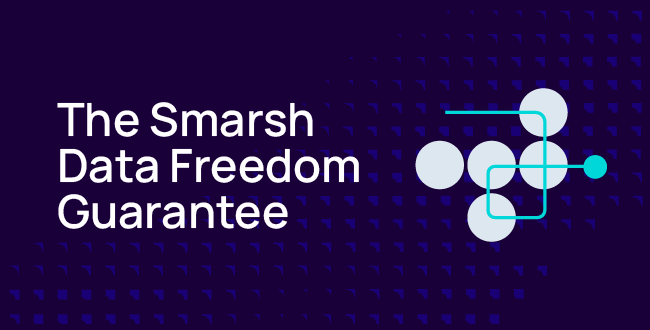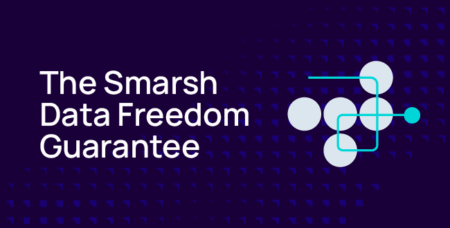Cloud Archiving for State and Local Agencies
Before we explore the inherent advantages of cloud archiving, it's critical to understand the current data management landscape that state and local agencies face. Agencies deal with vast and growing amounts of new data daily, from citizen records and financial data to internal communications, meeting minutes, text messaging, other collaboration platforms, and public service delivery documentation. The skyrocketing growth of this data, driven by hard copy digitalization, records retention laws (open records laws) and the increasing complexity of government operations, has created several data management challenges.
Why it matters
In an era of unprecedented information growth and increasingly stringent regulatory oversight, state and local agencies face significant challenges in managing their data effectively and compliantly.
The sheer volume of information generated daily, coupled with the need to maintain accessibility, security, and compliance, has pushed traditional data management systems to their limits. However, the introduction of cloud-based data management and archiving offers a revolutionary solution that not only addresses these challenges but also brings a multitude of benefits to public sector organizations.
The growing data dilemma for state and local agencies
The most common challenges public sector organizations face with data management and recordkeeping compliance include:
- Storage capacity: On-premise storage solutions struggle to keep up with the ever-expanding data volumes, leading to costly and unplanned upgrades.
- Cost management: The expenses associated with maintaining and expanding physical infrastructure are becoming increasingly burdensome for budget-constrained agencies. However, with the introduction of cloud archiving many years ago, these financial burdens can be significantly reduced, providing for a more accurate budgeting process.
- Accessibility: Ensuring that data is readily available to authorized personnel, especially in remote work scenarios, poses significant logistical challenges. Cloud archiving enhances data accessibility, empowering authorized personnel to access data from anywhere, at any time.
- Compliance: Meeting evolving regulatory requirements for data retention, privacy, and security requires sophisticated management systems.
- Disaster recovery: Protecting critical information from loss due to natural disasters, cyberattacks, or system failures is more crucial than ever. Cloud archiving ensures robust disaster recovery measures, providing a sense of security about the safety of your data.
- Public records requests: Responding to Freedom of Information Act (FOIA) requests and legal inquiries in the time allowed by FOIA laws requires efficient and consolidated data archival and retrieval systems. Many government agencies have run into FOIA response issues because, since COVID-19, many employees began working from home (and many still are), causing agency data to be spread around many more data repositories, including employee laptops.
These challenges have pushed many state and local agencies to seek innovative solutions, with cloud-based data management and archiving emerging as prime candidates for addressing these complex issues.
The power of cloud archiving: Transforming data management for state and local agencies
Cloud archiving represents a fundamental shift in how organizations approach data storage and management. Instead of relying on physical, on-premise infrastructure, cloud archiving leverages remote servers managed by specialized providers to store, manage, and process data. This approach offers a range of benefits that are particularly relevant to the needs of state and local agencies.
Scalability and flexibility
One of the most significant advantages of cloud archiving is its inherent scalability. State and local agencies often experience fluctuations in data volume due to various factors such as seasonal activities, special projects, or unforeseen events. Cloud archiving allows these organizations to quickly scale their storage capacity up or down based on current needs without significant capital investments in physical infrastructure.
This flexibility is particularly valuable for smaller agencies or those with limited IT resources. It eliminates the need to forecast long-term storage requirements accurately and invest in excess capacity "just in case." Instead, agencies can adopt a pay-as-you-go model, ensuring they only pay for the storage they use.
Cost-effectiveness
The financial benefits of cloud archiving are multifaceted:
- Reduced capital expenditure: By moving to a cloud-based solution, agencies can significantly reduce or eliminate the need for significant upfront investments in storage hardware and infrastructure.
- Lower operational costs: Cloud archiving reduces the expenses of maintaining and upgrading physical storage systems, including energy costs, cooling, and IT staff time.
- Predictable pricing: Many cloud providers offer transparent, subscription-based pricing models, allowing agencies to budget more effectively for their data management needs.
- Resource reallocation: By offloading the complexities of data management to cloud providers, agencies can reallocate their IT resources to more strategic initiatives that directly impact public service delivery.
Enhanced accessibility and disaster recovery
Cloud archiving dramatically improves data accessibility, a critical factor for state and local agencies that often need to access information quickly to serve their constituents effectively. With cloud-based solutions:
- Data can be accessed securely from anywhere with an internet connection, supporting remote work initiatives and improving operational flexibility
- Multiple copies of data can be stored in geographically dispersed locations, enhancing disaster recovery capabilities
- In the event of local disruptions or ransomware attacks, critical information remains available, ensuring continuity of government operations
This improved accessibility and robust disaster recovery framework not only enhances the efficiency of day-to-day operations but also bolsters agencies' resilience in the face of unforeseen challenges.
Advanced search and e-discovery capabilities
Modern cloud archiving solutions have sophisticated search and e-discovery tools that can significantly streamline information retrieval processes. These capabilities are particularly valuable for state and local agencies that must respond promptly and accurately to public records requests (FOIA) and legal inquiries.
Advanced search functionalities allow users to quickly locate specific documents or data points within vast archives using criteria such as keywords, date ranges, or file types. This saves time and improves the accuracy of responses to information requests.
E-discovery features go a step further, providing tools for legal teams to efficiently collect, process, and review large volumes of data in response to litigation or investigations. These capabilities can significantly reduce the time and resources required to comply with legal obligations, potentially saving agencies substantial legal fees and penalties.
Improved security and compliance
Contrary to common misconceptions, cloud archiving can enhance data security and compliance for state and local agencies. Leading cloud providers invest heavily in state-of-the-art security measures that often surpass what individual on-prem data centers can implement independently. These security features typically include:
- Advanced encryption for data in transit and at rest
- Multi-factor authentication and robust access controls
- Regular security audits and updates
- Compliance with industry standards and certifications (e.g., HIPAA, CJIS, FedRAMP)
Moreover, many cloud archiving solutions offer built-in compliance tools that help agencies meet their regulatory obligations. These may include:
- Automated retention policies to ensure data is kept for required periods and securely disposed of when no longer needed
- Audit trails that track all data access and modifications
- Data classification tools to ensure sensitive information is appropriately protected
By leveraging these advanced security and compliance features, state and local agencies can often achieve a higher level of data protection and regulatory compliance than they could with in-house solutions, all while reducing the administrative burden on their IT teams.
Implementing cloud archiving: Implementation best practices for state and local agencies
While the benefits of archiving in the cloud are clear, successful implementation requires careful planning and execution. Here are some best practices for state and local agencies considering the move to cloud-based data management:
- Conduct a comprehensive data assessment: Before migrating to the cloud, agencies should thoroughly inventory their data, identifying what needs to be archived, its sensitivity level, and any specific regulatory requirements.
- Develop a clear data governance strategy: Establish policies and procedures for data classification, retention, and access in the cloud environment.
- Choose the right provider: Select a cloud archiving provider with experience in the public sector and a track record of meeting government security and compliance standards.
- Plan for integration: Ensure the cloud archiving solution can integrate seamlessly with existing systems and workflows to minimize disruption.
- Invest in training: Provide comprehensive training to staff on using the new cloud archiving system effectively and securely.
- Start with a pilot program: Consider implementing cloud archiving in phases, starting with a small-scale pilot to identify and address issues before full-scale deployment.
- Regularly review and optimize: Continuously monitor the performance and cost-effectiveness of the cloud archiving solution, making adjustments as needed to maximize benefits.
The future of data management for state and local agencies
As we look to the future, adopting cloud archiving by state and local agencies represents more than just a solution to current data management challenges. It positions these organizations to take advantage of emerging technologies and trends that will shape the future of public service delivery:
- Artificial intelligence and machine learning: Cloud-based data archives can serve as rich data sources for AI and ML applications, enabling agencies to gain new insights and improve decision-making.
- Internet of things (IoT): As smart city initiatives grow, cloud archiving will play a crucial role in managing the vast amounts of data generated by IoT devices.
- Big data analytics: Cloud solutions' scalability will allow agencies to leverage big data analytics to improve public services and operational efficiency.
- Interagency collaboration: Cloud-based systems can facilitate better data sharing and collaboration between government entities, leading to more coordinated and effective public services.
Cloud-based data management and archiving offer a compelling solution for state and local agencies grappling with the challenges of modern data management. By providing scalability, cost-effectiveness, enhanced accessibility, advanced search capabilities, and improved security and compliance, cloud archiving addresses many of the key concerns facing public sector organizations today.
As we move further into the digital age, efficiently managing, securing, and leveraging data will become increasingly crucial for effective governance. By adopting cloud archiving solutions, state and local agencies can address their immediate data management needs and position themselves to harness the power of emerging technologies for improved public service delivery.
The journey to cloud-based data management may seem daunting, but careful planning and implementation offer a path to more efficient, secure, and responsive government operations. As state and local agencies continue to navigate the complexities of the information age, cloud archiving stands out as a powerful tool in their digital transformation toolkit, enabling them to better serve their communities now and in the future.
Share this post!
Smarsh Blog
Our internal subject matter experts and our network of external industry experts are featured with insights into the technology and industry trends that affect your electronic communications compliance initiatives. Sign up to benefit from their deep understanding, tips and best practices regarding how your company can manage compliance risk while unlocking the business value of your communications data.
Ready to enable compliant productivity?
Join the 6,500+ customers using Smarsh to drive their business forward.





Subscribe to the Smarsh Blog Digest
Subscribe to receive a monthly digest of articles exploring regulatory updates, news, trends and best practices in electronic communications capture and archiving.
Smarsh handles information you submit to Smarsh in accordance with its Privacy Policy. By clicking "submit", you consent to Smarsh processing your information and storing it in accordance with the Privacy Policy and agree to receive communications from Smarsh and its third-party partners regarding products and services that may be of interest to you. You may withdraw your consent at any time by emailing privacy@smarsh.com.
FOLLOW US